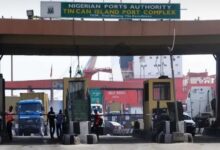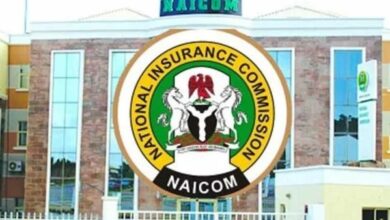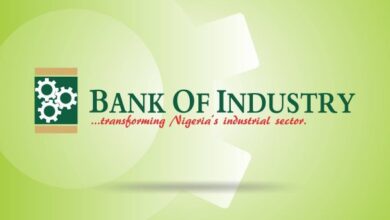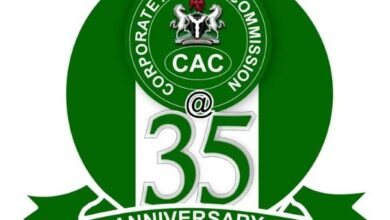Mounting Debts, Fading Trust: Nigerian Contractors Cry Out for Payment of over ₦760Bn
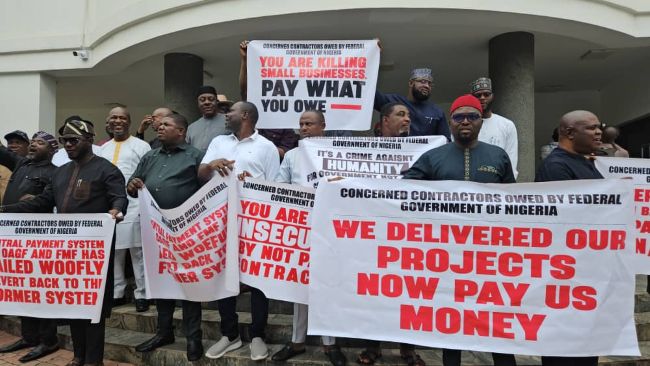
Nigeria’s indigenous construction and engineering sector is facing one of its toughest moments yet as the All Indigenous Contractors Association of Nigeria (AICAN) renewed its call on the Federal Government to immediately pay over ₦760 billion owed for completed 2024 projects.
The group, representing thousands of local contractors nationwide, took to the streets of Abuja in a peaceful protest to demand long-overdue payments for contracts duly executed across various ministries, departments, and agencies.
According to AICAN President, Jackson Ifeanyi, the delay has driven many indigenous contractors into financial ruin, with several firms on the brink of collapse after taking loans to complete projects now stalled by bureaucratic inaction.
“Our members have completed projects with borrowed money and have been left financially crippled. We cannot endure this any longer,” Ifeanyi said.
“The government must prioritise payment and ensure transparency in the financing and verification of these contracts.”
Economic Fallout: The Crushing Weight of Unpaid Contracts
The ₦760 billion debt represents more than a financial obligation—it underscores the systemic weaknesses in Nigeria’s public project management and fiscal discipline.
Local contractors, who form the backbone of infrastructure delivery across rural and urban communities, say the prolonged delay in payment has paralysed cash flow, triggered loan defaults, and forced workforce layoffs.
AICAN Vice President, Fredrick Agada, expressed deep frustration over the government’s handling of indigenous firms, accusing authorities of favouring foreign contractors over local players.
“Foreign contractors are being paid promptly while our members are dying in penury. Many can’t feed their families, some have lost their businesses, and a few have died waiting for payment,” Agada lamented.
He warned that AICAN might embark on nationwide protests if the government fails to settle the debt, adding that several contractors are on the verge of bankruptcy after executing projects strictly according to specifications.
Legal Experts Join the Call: ‘It’s a Breach of Contract’
In a show of solidarity, a group of Nigerian lawyers joined AICAN’s demonstration, describing the non-payment as both a breach of contract and a violation of fundamental rights.
Legal practitioner Aquila Akindo said the government’s inaction contravenes the principles of fairness, equity, and rule of law.
“This is not just an economic issue—it’s a legal breach. The government must honour its contractual obligations,” Akindo stated.
“Contractors who have fulfilled their side of the bargain should not be punished for government inefficiency.”
The legal coalition called for the immediate release of funds and urged the Office of the Accountant-General of the Federation to provide a transparent payment timeline for all verified projects.
Official Response: Dialogue Promised, Skepticism Remains
Addressing the protesters, Brig.-Gen. Etido Ekpo (rtd.), Director of the Sergeant-at-Arms at the National Assembly, acknowledged the contractors’ plight and assured that their demands would be formally transmitted to relevant authorities.
Ekpo emphasised that while the government remains committed to supporting local contractors, the best path forward would be dialogue and structured negotiations.
However, the contractors remain cautious. Despite assurances from the Ministry of Finance and the Accountant-General’s office that payments are being processed, AICAN insists that repeated promises without concrete action have eroded trust.
“We have heard these assurances before,” Agada noted. “What we need now are verifiable actions, not more pledges.”
BRANDECONOMY ANALYSIS: The Fiscal Strain Behind Nigeria’s Infrastructure Debt
Nigeria’s failure to promptly pay local contractors is symptomatic of a larger issue—poor fiscal discipline and weak project financing structures that continue to undermine confidence in the public procurement system.
1. The Cash Flow Trap
Delayed capital releases have become a recurring feature of Nigeria’s annual budgets, often leaving ministries unable to meet contractual obligations. Many indigenous contractors depend on bank loans to execute government projects, and prolonged payment delays result in high interest costs, defaults, and insolvency.
2. The Foreign Bias Dilemma
While the government often justifies the engagement of foreign firms on the grounds of capacity, this practice contradicts Nigeria’s local content policy and stifles domestic industrial growth. Indigenous firms, which employ thousands of skilled workers, are now struggling to survive amid uneven competition and discriminatory payment practices.
3. The Ripple Effect on the Economy
The unpaid debt has ripple effects across the economy. Construction suppliers, equipment lessors, and subcontractors are affected, creating a cascade of financial strain that worsens unemployment and slows down capital project delivery.
4. Accountability and Reform
Analysts argue that a digitised project verification and payment tracking system could eliminate delays and reduce corruption in public contracting. Establishing a Contract Payment Transparency Portal (CPTP) would ensure that all completed and certified projects are paid within a specified time frame—without bureaucratic manipulation.
The Road Ahead: Time for Policy Action, Not Promises
For Nigeria to restore credibility in its infrastructure financing framework, the government must:
- Prioritise payment to verified local contractors within a defined timeline.
- Publish outstanding obligations for transparency and public accountability.
- Strengthen contract management systems under the Bureau of Public Procurement (BPP).
- Provide credit relief or refinancing support through the Bank of Industry (BOI) for distressed contractors awaiting government payments.
The ₦760 billion owed to indigenous contractors is not merely a financial backlog—it is a litmus test of Nigeria’s economic governance, fiscal integrity, and commitment to local enterprise development.
If unresolved, this crisis could erode investor confidence in Nigeria’s infrastructure sector, weaken small and medium construction firms, and delay critical projects essential to national growth.





